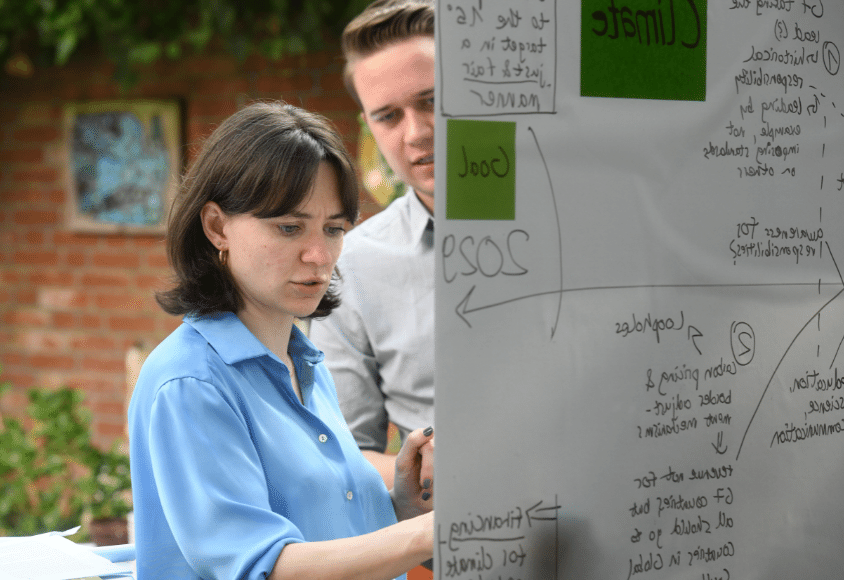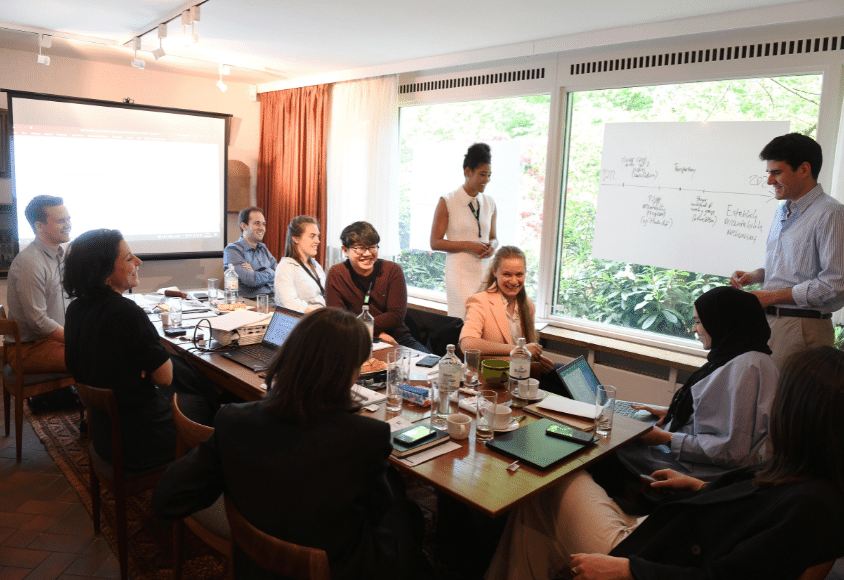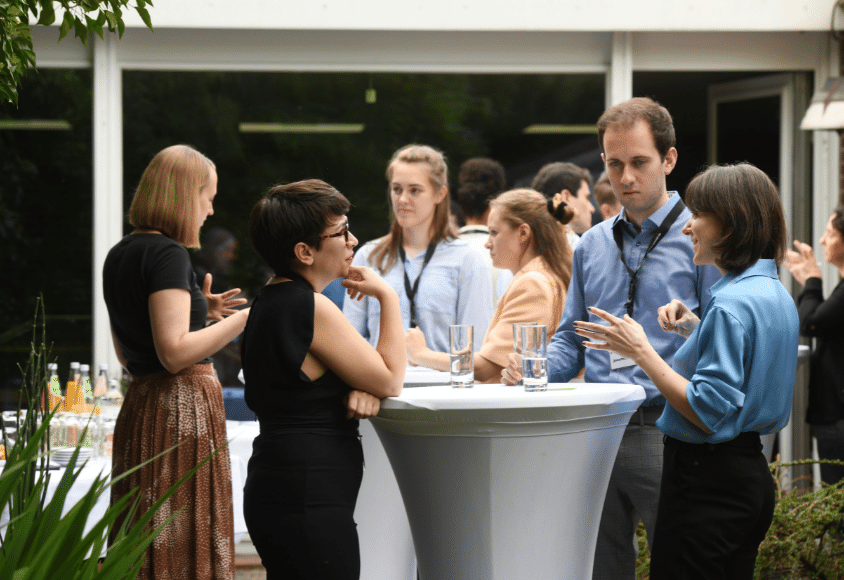Russia’s ongoing aggression on Ukraine, the Israel-Hamas war or enduring conflicts in Sudan, Myanmar, or Yemen: violence is increasing in multiple parts of the world. Meanwhile, multilateralism is under strain, limiting opportunities for conflict resolution and making traditional peacebuilding methods ineffective. The 2024 US presidential election thus comes at a crucial time for efforts to end wars and build peace around the world. Fears of violence also persist within the US after the last presidential election culminated in the January 6 US Capitol attack. A new approach to resolving conflicts and building peace is urgently needed.
To analyse the 2024 US election’s potential implications for conflict resolution and peacebuilding across the globe, the Europa-Kolleg Hamburg (EKH) and Bundeskanzler-Helmut-Schmidt-Stiftung (BKHS) invite up to 12 early career professionals to apply for their #FOTAR2024 Scholarship Programme.
As #FOTAR2024 Scholar, you are invited to attend an in-person workshop in Hamburg, Germany, on 30 September and 1 October 2024, for which you prepare a draft policy brief of 3-4 pages. The policy brief should outline plausible scenarios for international conflict resolution and peacebuilding after the US election, depending on which party takes over the White House. During the workshop, you will receive in-depth feedback and mentoring by peers and experienced discussants on your policy brief. Following the workshop, EKH and BKHS will publish the revised policy briefs in the lead-up to election day.
Policy briefs should focus on one of the following issue areas:
1. Prospects for conflict resolution in 2024 and beyond: Democrats and Republicans disagree about many aspects of US foreign policy and both parties are also internally divided. This is perhaps most evident with regard to the wars in Gaza or Ukraine, but conflicts elsewhere may also be affected by shifts in US foreign policy. As the 2024 US election takes place in a global environment characterised by a return to power politics and a weakening of international institutions, what will its outcome mean for future trajectories of conflicts around the world and prospects for their resolution?
2. Backlash against gender equality and the future of peacebuilding: Democrats and Republicans are deeply divided on women’s and girls’ reproductive rights. Abortion laws will play an important role in the 2024 US election. This is not only a domestic policy issue but has international implications, as the watered-down 2019 UN resolution on helping survivors of war-related sexual violence shows. As threats and attacks against women and LGBTQI* communities continue to rise globally, what are the consequences for states implementing feminist foreign policies and for approaches to peacebuilding?
3. The UN’s role in coming crises of international peace and security: The US election takes place in the context of eroding multilateral cooperation. In the UN, this trend is linked to growing geopolitical competition between major powers, diverging interests of countries of the Global North and South or the crisis of the UN’s traditional tools, such as peacekeeping operations. A Republican administration will likely present a further challenge. How can the UN be made fit to deal with future crises of international peace and security and what future form of peace operations is both possible and desirable?
Eligibility
In order to apply for the #FOTAR2024 Scholarship Programme, you should:
- Be between 25 and 35 years old
- Hold a Master’s degree (or equivalent) in political science, peace and conflict research, economics, history, law or a related field
- Have at least 1 year of professional experience (internships included) in academia, politics, civil society or at a think tank
- Have an excellent command of English (both spoken and written – your policy brief must be submitted in English and there will be no translation provided during the in-person workshop in Hamburg)
- Demonstrate a strong interest in the field of conflict resolution and peacebuilding
- Commit to (i) drafting a 3-4 pages policy brief and submitting it in time for the Hamburg workshop; (ii) traveling to Hamburg and attending the workshop in person; and (iii) revising the policy brief for online publication until 10 October 2024.
There are no citizenship requirements. We welcome applications from people all over the world.
Expenses and application process
International airfare, domestic travel, insurances, visa fees, accommodation and an honorary fee for your policy brief are covered through a #FOTAR2024 Scholar stipend. Stipends amount to €1.500 for participants traveling to Hamburg from within Germany or the EU and to €3.000 for those travelling to Hamburg from outside of the EU. Please state your current place of residence in your application documents. EKH and BKHS will also cover the costs for meals and social activities during the programme in Hamburg.
To become a #FOTAR2024 Scholar, please send your application in one single PDF document and by 11:59 PM CET on 8 April 2024 to Ms. Miriam van der Linden at m.vanderlinden@helmut-schmidt.de.
Your application should include:
- A motivation letter (max. 2 pages), outlining the research question you want to answer in your policy brief and explaining how it fits into one of the workshop’s three issue areas
- An up-to-date CV (we do not encourage including a photograph of yourself in your CV)
Successful applicants will be notified in May 2024. Draft policy briefs will be due on 15 September 2024. We will send more information and guidelines on writing policy briefs to successful applicants in due time.
If you have any questions about the #FOTAR2024 Scholarship Programme, please reach out to Miriam at m.vanderlinden@helmut-schmidt.de. Please refrain from calling EKH and BKHS.
Please note that even if you do not meet every single requirement, we would still encourage you to apply. We also value diversity and highly appreciate all submissions irrespective of gender, nationality, ethnicity, religion, disability, sexual orientation or social background.
We're looking forward to receiving your applications!





